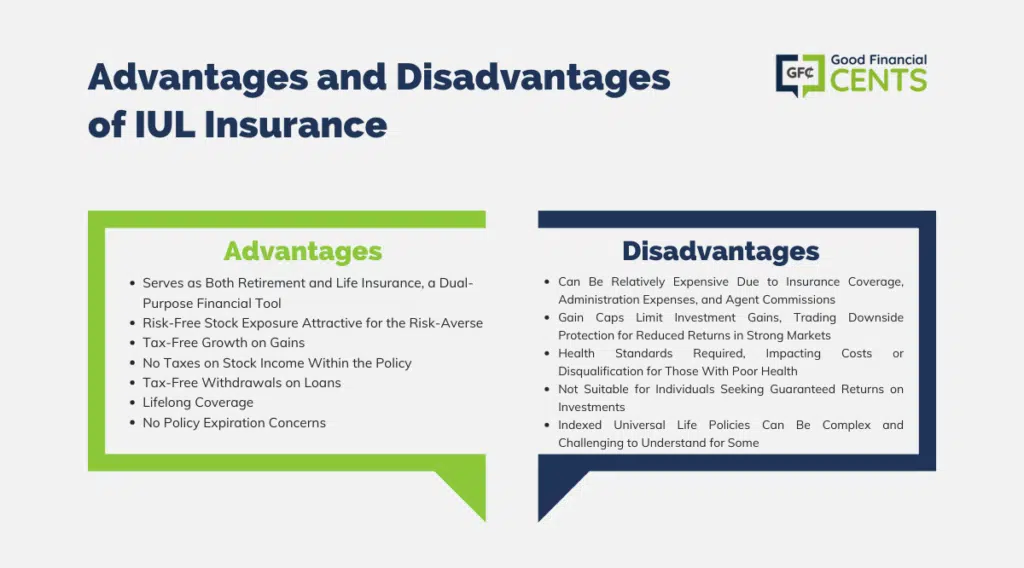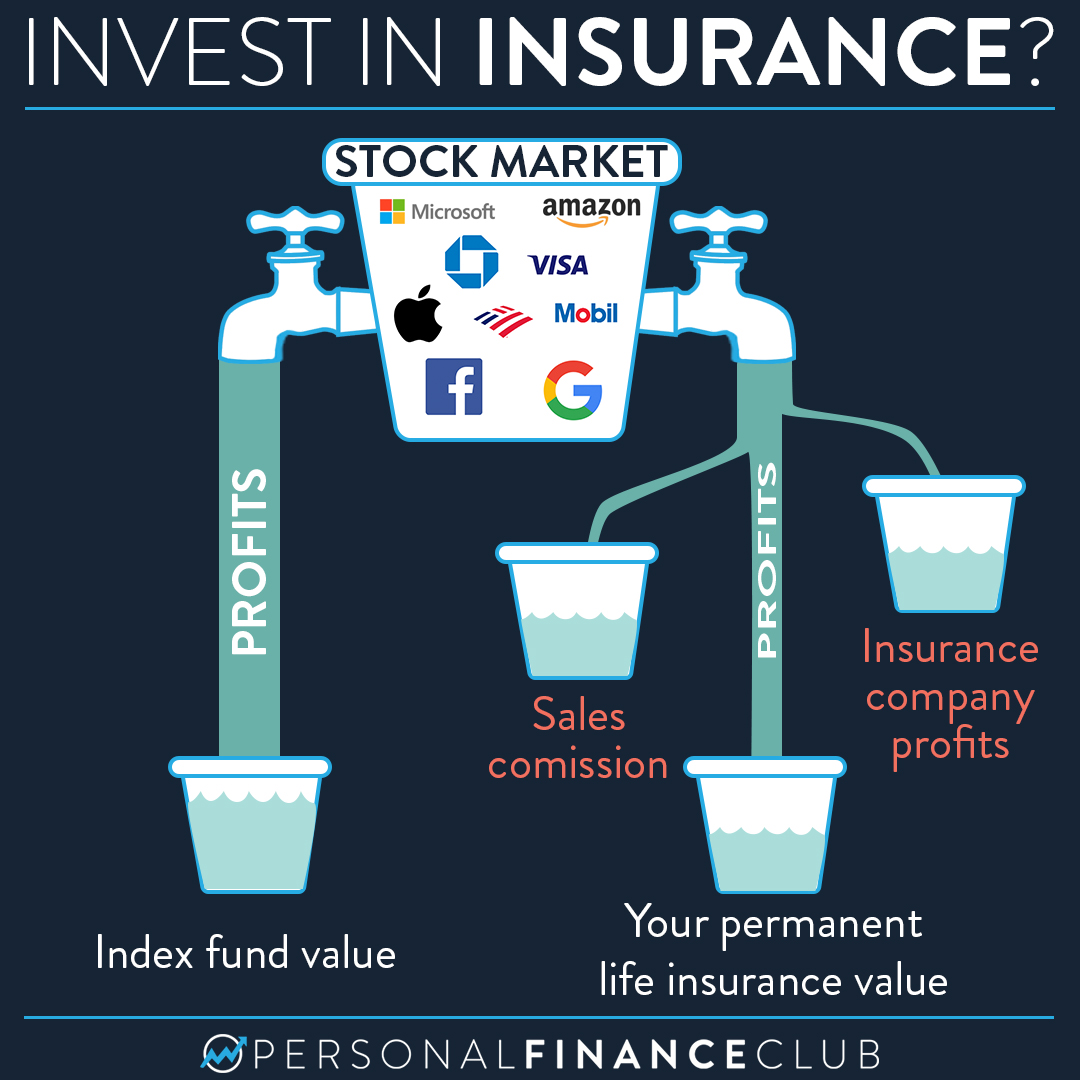All Categories
Featured
Table of Contents
Indexed Universal Life (IUL) insurance policy is a kind of long-term life insurance coverage plan that combines the attributes of standard global life insurance with the possibility for money value development connected to the efficiency of a securities market index, such as the S&P 500 (Long-term Indexed Universal Life benefits). Like other forms of long-term life insurance policy, IUL provides a survivor benefit that pays out to the beneficiaries when the insured passes away
Money value buildup: A part of the costs repayments goes into a cash worth account, which gains passion over time. This cash worth can be accessed or borrowed versus throughout the insurance policy holder's life time. Indexing option: IUL plans offer the opportunity for cash value development based upon the efficiency of a stock exchange index.
How long does Indexed Universal Life Investment coverage last?
As with all life insurance policy items, there is additionally a set of risks that policyholders need to know prior to considering this sort of policy: Market risk: One of the primary dangers associated with IUL is market danger. Considering that the cash worth development is connected to the performance of a securities market index, if the index chokes up, the cash worth might not expand as anticipated.

Sufficient liquidity: Insurance policy holders need to have a steady financial situation and fit with the superior repayment demands of the IUL plan. IUL allows for versatile costs payments within particular limitations, however it's essential to keep the policy to ensure it attains its intended goals. Rate of interest in life insurance policy coverage: Individuals who require life insurance protection and a passion in money value development might locate IUL attractive.
Candidates for IUL need to have the ability to comprehend the technicians of the policy. IUL might not be the best alternative for individuals with a high resistance for market risk, those who focus on low-priced financial investments, or those with even more instant economic demands. Consulting with a qualified monetary advisor that can give individualized advice is essential prior to considering an IUL plan.
All registrants will certainly receive a schedule invitation and web link to join the webinar using Zoom. Can not make it live? Register anyway and we'll send you a recording of the discussion the following day.
Who has the best customer service for High Cash Value Iul?
You can underpay or miss costs, plus you might have the ability to adjust your survivor benefit. What makes IUL different is the way the cash value is invested. When you take out an indexed global life insurance policy plan, the insurer provides a number of options to choose a minimum of one index to use for all or part of the cash money worth account sector of your plan and your survivor benefit.
Cash value, along with potential development of that value with an equity index account. An alternative to assign part of the cash value to a fixed passion option.
Insurance policy holders can decide the percentage assigned to the repaired and indexed accounts. The worth of the chosen index is tape-recorded at the start of the month and compared to the worth at the end of the month. If the index increases throughout the month, rate of interest is included in the cash value.
The 6% is increased by the money worth. The resulting rate of interest is included in the money value. Some plans calculate the index obtains as the amount of the adjustments for the duration, while other policies take an average of the daily gains for a month. No passion is attributed to the cash account if the index drops rather of up.
Who offers flexible High Cash Value Iul plans?
The rate is established by the insurance provider and can be anywhere from 25% to greater than 100%. (The insurance firm can additionally change the get involved rate over the lifetime of the plan.) If the gain is 6%, the engagement rate is 50%, and the existing cash worth total is $10,000, $300 is included to the money value (6% x 50% x $10,000 = $300).
There are a variety of advantages and disadvantages to consider before buying an IUL policy.: As with standard global life insurance policy, the policyholder can increase their costs or reduced them in times of hardship.: Amounts attributed to the cash money value expand tax-deferred. The cash money value can pay the insurance policy costs, allowing the insurance holder to lower or stop making out-of-pocket costs payments.
What are the benefits of Guaranteed Indexed Universal Life?
Lots of IUL plans have a later maturity day than various other kinds of universal life policies, with some finishing when the insured reaches age 121 or even more. If the insured is still alive during that time, plans pay out the survivor benefit (however not typically the cash money worth) and the proceeds might be taxable.

: Smaller sized plan face worths don't use much advantage over regular UL insurance coverage policies.: If the index goes down, no rate of interest is credited to the money value.
With IUL, the goal is to make money from higher movements in the index.: Since the insurer just purchases choices in an index, you're not directly bought supplies, so you don't benefit when companies pay returns to shareholders.: Insurers fee costs for managing your money, which can drain money value.
Is Indexed Universal Life Investment worth it?

For lots of people, no, IUL isn't much better than a 401(k) - Indexed Universal Life premium options in regards to conserving for retired life. The majority of IULs are best for high-net-worth individuals trying to find ways to decrease their taxable revenue or those who have actually maxed out their various other retired life options. For everyone else, a 401(k) is a better investment vehicle due to the fact that it does not carry the high charges and costs of an IUL, plus there is no cap on the amount you may earn (unlike with an IUL policy)
While you may not lose any cash in the account if the index decreases, you won't gain interest. If the market turns favorable, the earnings on your IUL will not be as high as a normal investment account. The high cost of premiums and charges makes IULs pricey and considerably less cost effective than term life.
Indexed universal life (IUL) insurance coverage supplies cash value plus a survivor benefit. The cash in the cash worth account can earn interest via tracking an equity index, and with some typically alloted to a fixed-rate account. Indexed universal life plans cap exactly how much cash you can collect (usually at much less than 100%) and they are based on a perhaps unstable equity index.
What are the benefits of Guaranteed Iul?
A 401(k) is a much better alternative for that purpose since it does not bring the high fees and premiums of an IUL plan, plus there is no cap on the amount you might make when invested. Most IUL plans are best for high-net-worth individuals looking for to decrease their taxed income. Investopedia does not provide tax, investment, or financial services and recommendations.
If you're taking into consideration getting an indexed universal life policy, very first talk with an economic advisor who can discuss the nuances and give you an exact image of the real possibility of an IUL plan. See to it you comprehend how the insurer will certainly compute your rates of interest, revenues cap, and charges that could be assessed.
Latest Posts
Why is Iul Vs Whole Life important?
What is Iul?
Who has the best customer service for Indexed Universal Life Vs Term Life?